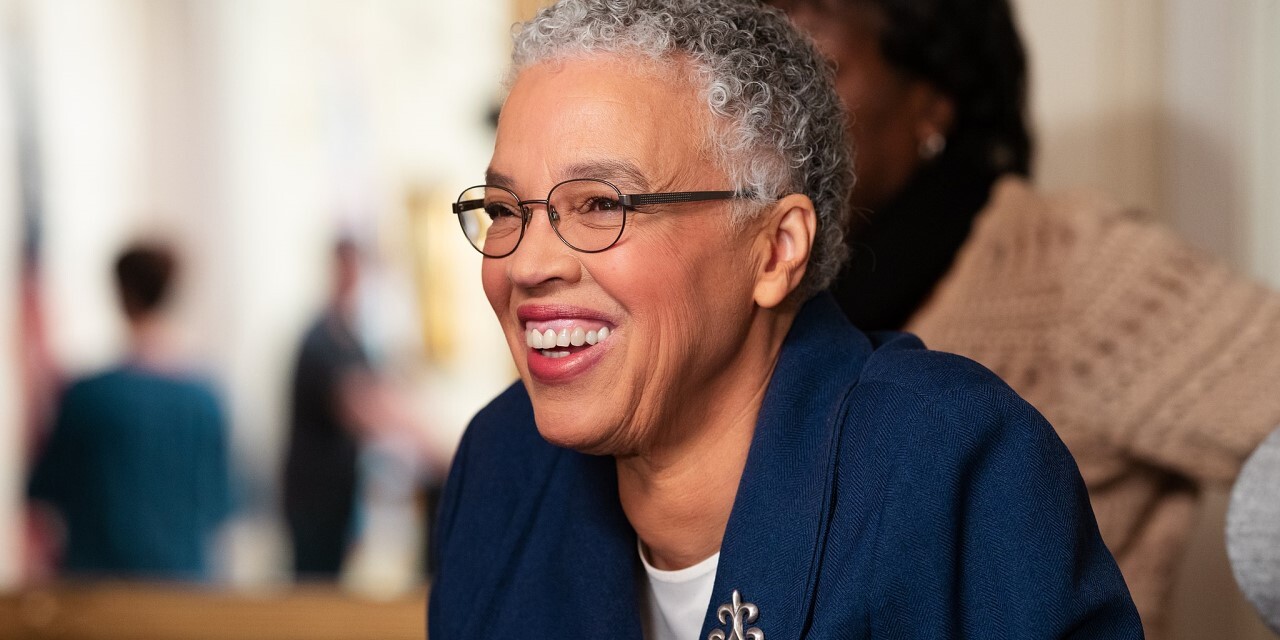With potentially billions of tax dollars every year on the line, the Illinois Supreme Court will soon decide whether Illinois’ so-called transportation lockbox constitutional amendment can be used to force Cook County and other local governments in Illinois to spend money from local transportation-related taxes on actual transportation projects, or if the money can still be used to fund county operations.
On Wednesday, Jan. 12, attorneys for a coalition of road and transportation contractors squared off against attorneys for Cook County, presenting oral arguments over how best to interpret and apply the language of the Illinois constitution’s Safe Roads Amendment to money raised under certain taxes imposed by Cook County and other local governments.
On one hand, a coalition of road construction contractors assert the amendment, formally known as the Safe Roads Amendment, states plainly that transportation-related tax money raised by Illinois governments must be actually used to pay for roads, bridges, mass transit, passenger railroads, airports and other transportation infrastructure.

John Fitzgerald
| Tabet DiVito & Rothstein
“For generations, people all across our state have paid enormous taxes for transportation, both to the state and units of municipal government, ” said John Fitzgerald, an attorney with the firm of Tabet DiVito & Rothstein, of Chicago, representing the transportation contractors. “All the while, people have seen firsthand that their transportation tax dollars have not been used to meet their transportation needs.”
On the other side, Cook County says the amendment’s language is not as clear as the road builders let on, and should be read to apply to Illinois state government alone, and not units of local home rule government, like Cook County.
Further, the county argued, the road builders’ interpretation is only an attempt by transportation construction businesses in Illinois to extract billions of new dollars, while forcing local governments, like Cook County, to cut services and raise taxes elsewhere to make up for resulting budgetary shortfalls.
Assistant Cook County State’s Attorney Amy Crawford, arguing on behalf of the county, said judges should look at the intent of the Safe Roads Amendment. She said that was to “tie the hands” of Illinois state lawmakers from “dipping into the cookie jar” of state transportation money every year to help balance the budget, while skimping on transportation.
“The intent was not to create hundreds of other cookie jars for transportation funding in the various 218 odd home rule units (of local government) around the state,” Crawford said.
The case landed before the Illinois Supreme Court last year, after a state appeals panel in Chicago declared the Safe Roads Amendment doesn’t block Cook County from continuing to spend certain transportation-related tax dollars as the county government deems fit.
The road builders have tussled in court with Cook County on the question since 2018, when the coalition of transportation contractors and trade associations sued. They accused Cook County of violating the Safe Roads Amendment by continuing to plow nearly $250 million from alleged transportation-related taxes into the county’s Public Safety Fund.
The county uses the Public Safety Fund to help pay for operations at the Cook County Sheriff’s Office and other county offices that work within the criminal justice system.
The Safe Roads Amendment, also known as the transportation lockbox amendment, was added to the state constitution by voters in 2016.
The amendment ostensibly requires the state and all units of government in Illinois to spend money collected from taxes and fees on transportation solely on transportation work and projects. The road builders argued the amendment should require Cook County and all Illinois local governments to dedicate the funding to roads, bridges, mass transit and other real transportation projects.
However, Cook County and other local governments in Illinois have argued the amendment can’t be read as applying to taxes raised by home rule units of government, like Cook County, which are granted special powers under the Illinois state constitution.
That interpretation has been backed by a Cook County judge and a panel of the Illinois First District Appellate Court.
The appellate justices said the amendment should be read to apply only to taxes and fees raised by state law – or, statutes – or funds governed by state law, not to taxes raised by a county ordinance, as Cook County’s were.
That decision prompted the road builders to appeal to the Illinois Supreme Court.
In their arguments, the road builders asserted the “plain language” of the Safe Roads Amendment should hold sway.
That included language stating “no moneys” and “no revenue” raised by taxes or fees related to transportation can be spent on anything other than transportation-related costs, Fitzgerald noted.
“‘No moneys’ means no moneys,” said Fitzgerald. “Not ‘some moneys,’ but not others.”
He noted the amendment specifically excludes money obtained from the federal government from the lockbox.
“If the drafters (of the amendment) had wanted to restrict only some of the revenues, they would have said so,” Fitzgerald said.
In reply, Crawford pointed justices to language included in the voter’s guide, which was published when the amendment was placed on the ballot in 2016, and to transcripts of the legislative debate over the amendment in the Illinois General Assembly.
She noted both the voter’s guide and the legislative debate appeared to indicate lawmakers at the time the amendment was drafted did not intend to apply the amendment to Cook County and other so-called home rule units of local government, which have the ability to raise their own transportation-related taxes and fees.
Further, Crawford asserted allowing the “plain language” of the amendment to stand would lead to “absurdity.” She argued Cook County itself maintains only about 560 miles of roads out of thousands of miles of roadways within Cook County’s borders. Yet, she said, the road builders’ interpretation of the amendment would compel the county to divert more than $200 million annually from its county operations to the limited number of roads it actually is obligated to maintain.
“If these taxes are sucked away from their current purposes and used toward transportation funding, taxpayers are going to be on the hook for additional revenue, or they’ll have to face cuts in services, cuts to public health, to public safety functions, which are very important to the county,” Crawford said.
Fitzgerald, however, asserted the county is attempting to violate a legal principle, which holds that courts must uphold the plain language of a law, unless there is some “ambiguity” in the text that calls the plain understanding of the law’s text into question.
He asserted the county was attempting to use legislative debate and text from the voter’s guide to override the plain language of the Safe Roads Amendment.
Justices appeared divided on the question.
Justice Michael Burke questioned whether the county was asking the court to use the legislative debate and the voter’s guide to “rewrite” the Safe Roads Amendment.
And he and Justice Rita Garman questioned whether the county could actually use a voter’s guide or legislative debate to “create ambiguity” in the amendment’s plain text.
“If it (the language of the amendment) is plain, it says what it says,” said Garman. “And then if the legislature says, ‘No, the court got it wrong,’ then it’s up the legislature to take some additional action. Isn’t that the way it’s always operated?”
Justice Mary Jane Theis, however, questioned Fitzgerald repeatedly on whether the court should just “ignore” the legislative debate altogether, even when it appeared those who championed the amendment in Springfield may have sided with the county on the question of whether the amendment should apply to sales and excise taxes collected by home rule local governments.
“We’re to pretend it didn’t happen?” Theis said.
The state Supreme Court is expected to issue a decision in the case in coming weeks.
Plaintiffs in the action include the Illinois Road and Transportation Builders Association; the Federation of Women Contractors; the Illinois Association of Aggregate Producers; Associated General Contractors of Illinois; Illinois Asphalt Pavement Association; Illinois Ready Mixed Concrete Association; Great Lakes Construction Association; American Council of Engineering Companies Illinois Chapter; Chicagoland Associated General Contractors; Underground Contractors Association of Illinois; and Illinois Concrete Pipe Association.
